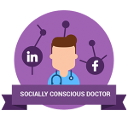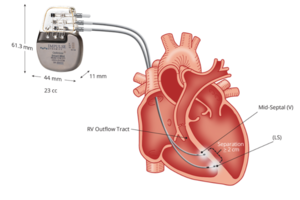![]() EXPERT
EXPERT
Emad F. Aziz, DO, MB ChB, FACC
Cardiac Electrophysiologist
- Newark, New Jersey
- College of Osteopathic Medicine - New York Institute of Technology
- Accepting new patients
Advancements in Device Therapy for Heart Failure, The Rutgers New Jersey medical School and Arrhythmia Institute at University Hospital Experience
Revolutionizing Heart Failure Management: The Rise of Cardiac Contractility Modulation (CCM) In the realm of cardiovascular health, innovation is a beacon of hope for millions...
Leadless Pacemaker Experience at Rutgers New Jersey medical School and Arrhythmia Institute at University Hospital
Dr. Aziz, as Chief of Cardiac Electrophysiology at Rutgers New Jersey Medical School, has been at the forefront of adopting and embracing leadless pacemaker technology for our...
Direct Oral Anticoagulants (DOAC's)
The novel drugs are called dabigatran (Pradaxa), rivaroxaban (Xarelto), apixaban (Eliquis), and edoxaban (Lixiana). The trade names are those in parenthesis. Edoxaban was the...
Questions About Heart Rate
1. What is a heart rate? What does it indicate, and why is it important? Heart rate (HR) is the number of heart beats calculated per minute. The heart is the source of life...
Atrial Fibrillation
Atrial fibrillation is the most common irregular heart rhythm abnormality. It is caused by abnormal electrical signals that are causing the heart to beat irregularly and usually...
What can I expect from carotid doppler?
What is the difference between a CT scan and a coronary CTA?
Are coronary calcium scans necessary?
The American College of Cardiology and the American Heart Association guidelines published in 2013 on cardiovascular risk assessment suggested that it would be reasonable to perform coronary calcium heart scans for people with a calculated risk of 5 to 7.5 percent or when "a risk-based treatment decision is uncertain."
A Calcium scan does result in radiation exposure. While this exposure is generally considered safe, it is not recommended when there is no likely benefit to getting the scan. In other words, when the scan is not likely to provide any information that is useful in defining your risk or directing a treatment plan, the risk of radiation exposure outweighs any potential benefit.
According to the American College of Cardiology and the American Heart Association guidelines, a calcium scan is generally not recommended for the following people:
Men under age 40 and women under age 50, because detectable calcium at younger ages is not likely
People who have a low risk, because detectable calcium is highly unlikely, in the absence of family history of heart attacks at early age
People who already have a known high risk, because the heart scan will likely not provide any additional information to guide treatment decisions
People who already have symptoms or a diagnosis of heart disease, because the procedure would not help doctors better understand the disease progression or risk
People who already had an abnormal coronary calcium heart scan
What do echocardiograms detect?
Echo tests are done by trained sonographers. You’ll lie on a bed on your left side or back, the sonographer will put special jelly on a probe and move it over your chest area, ultra-high-frequency sound waves will pick up images of your heart and valves.
Your heart’s movements can be seen on a video screen, it usually takes one hour and is painless and has no side effects. Sometimes the probe needs to be closer to your heart to give clearer pictures.
Sound waves will pick up images as explained above. What can the test show? The size and shape of your heart, how well your heart is working overall, if a wall or section of heart muscle is weak and not working correctly, If you have problems with your heart’s









